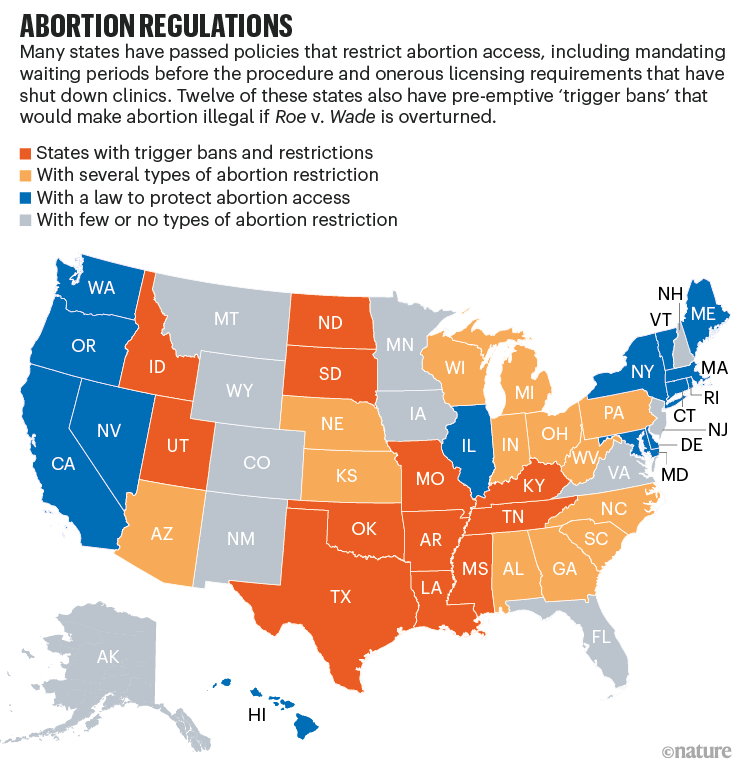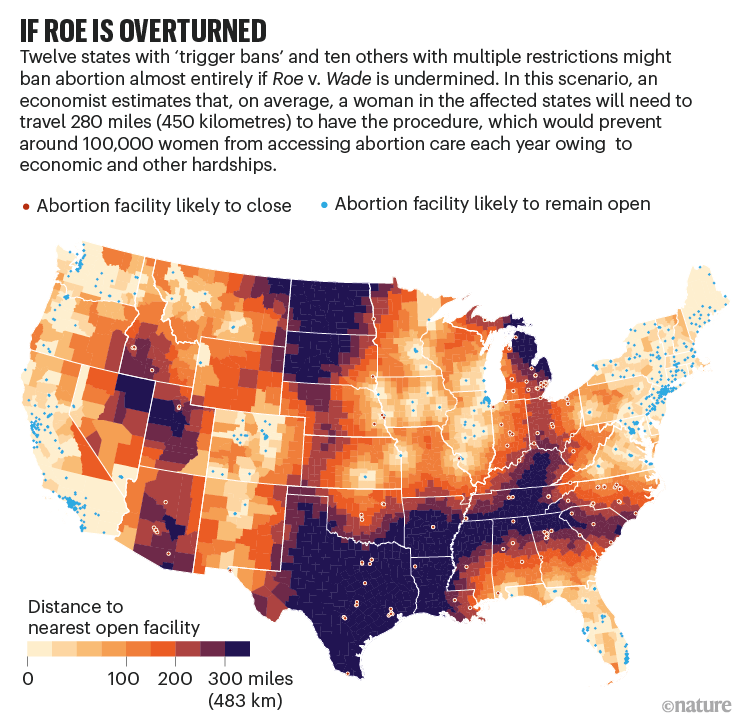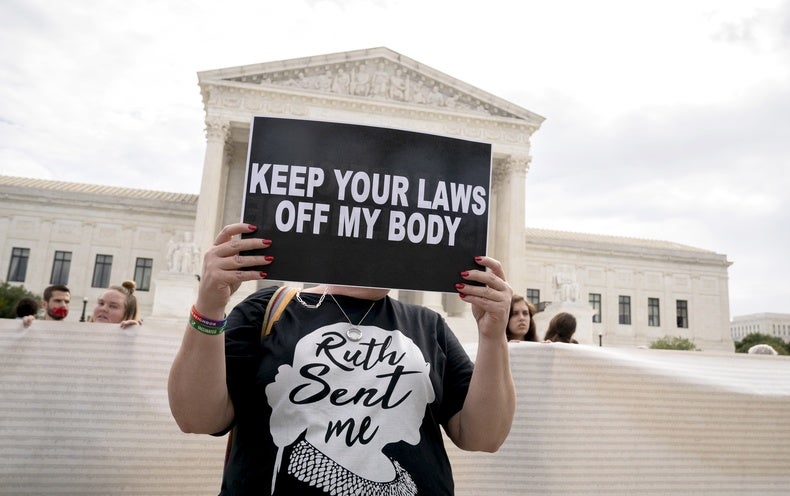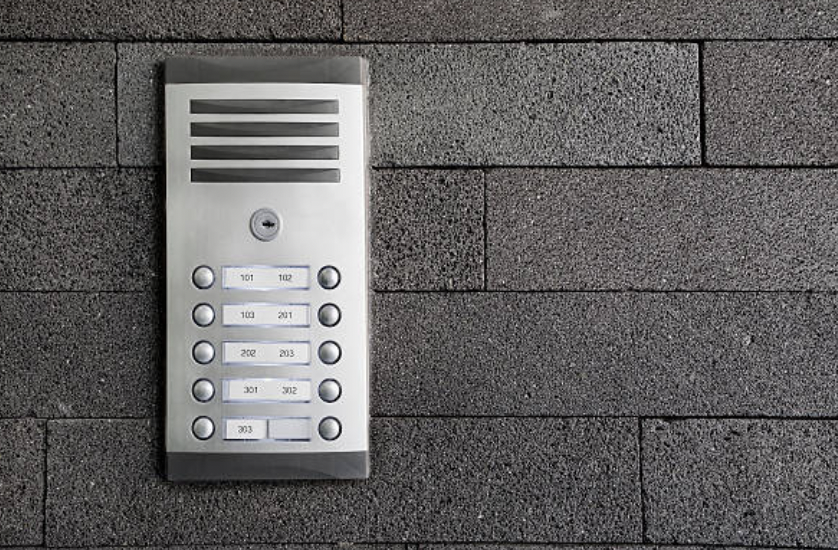An upcoming case in the USA Ultimate Courtroom may hasten the top of abortion throughout kind of part of the US—a proper that the rustic has defended for almost 50 years. Greater than 800 scientists and a number of other clinical organizations have equipped proof to the courtroom appearing that abortion get right of entry to is crucial part of reproductive healthcare.
The researchers, a few of whom have studied the affect of abortion for a few years, are rebutting arguments made to the courtroom that abortion has no advisable impact on ladies’s lives and careers—and may even motive them hurt. “The clinical neighborhood is raring to weigh in on such crucial factor, particularly given 5 many years of proof regarding the significance of abortion get right of entry to,” says Stephanie Toti, a director on the New York Town-based Lawyering Undertaking, a gaggle that advocates for abortion get right of entry to in the US. She provides, “This situation is a large deal.”
The case, to be heard by way of the Ultimate Courtroom on 1 December, is between the state of Mississippi, which has issued a ban on abortion after 15 weeks of being pregnant, and the Jackson Girls’s Well being Group, the one medical institution within the state that gives abortions. In decrease US courts, the medical institution has effectively argued that the ban violates Roe v. Wade, the landmark 1973 Ultimate Courtroom determination that enshrined the federal proper to an abortion till the purpose {that a} fetus can reside outdoor the womb—a ‘viability same old’ normally set at 22 or 24 weeks of being pregnant. However state officers at the moment are taking the case to the easiest courtroom, searching for to finish the precedent set by way of Roe in order that particular person states can set their very own laws at the legality of abortion. In a wonder transfer ultimate week, the Ultimate Courtroom introduced that it might additionally pay attention a separate case on an abortion ban in Texas on 1 November; that call has the prospective to hobble Roe by way of permitting states to forget about the viability same old.
Since Roe, many states have lowered abortion get right of entry to by way of, jointly, issuing greater than 1,000 restrictions at the process, the bulk in midwestern and southern states (see ‘Abortion rules’). However prison analysts say the Mississippi case is the primary within the Ultimate Courtroom in 30 years that might immediately overturn or considerably undermine that long-standing precedent. Some analysts assume this is more likely to occur, judging from the courtroom’s present composition. Former US president Donald Trump promised to nominate Ultimate Courtroom justices who would opposite Roe, and succeeded in changing 3 justices all the way through his presidency: there at the moment are six conservative justices who’ve stated that they disagree with abortion precedents, and 3 liberal justices. Will have to the courtroom successfully finish Roe, 12 states have insurance policies designed to prohibit maximum abortions instantly, and—at the foundation of current and pending insurance policies—researchers are expecting that any other 8 to ten may just practice go well with.

With a lot at stake, many of us on each side of the abortion debate—together with scientists, spiritual leaders and athletes—have filed a complete of greater than 130 ‘amicus’, or ‘pal of the courtroom’, briefs to the Ultimate Courtroom upfront of the Mississippi case, Dobbs v. Jackson Girls’s Well being Group. A handful of the briefs are authored by way of thousands of researchers in public fitness, social science, fitness fairness and economics, who urge the courtroom to uphold abortion rights at the foundation of dozens of peer-reviewed research analyzing the consequences of abortion on well-being.
Rosie Griffin, an lawyer on the legislation company Feldesman Tucker Leifer Fidell in Washington DC, which filed an amicus transient signed by way of virtually 550 researchers in public-health, reproductive-health and fitness coverage, along side the American Public Well being Affiliation and two analysis institutes, says her company felt it was once essential for scientists to weigh in, even supposing the justices aren’t obliged to depend on this sort of file.
“It is a coalition of other folks who’ve spent their running lives having a look at goal measures of maternal and kid fitness,” says Griffin, “and who learn Mississippi’s courtroom filings, in addition to the ones in favour of its argument, and stated, ‘Those claims aren’t in any respect supported by way of the information.’”
Contents
Dependable knowledge
State restrictions, dictating, as an example, that youngsters should download parental consent for abortion, were fought in courts for many years. The latest main Ultimate Courtroom determination on abortion—Deliberate Parenthood v. Casey in 1992—decided that judges should weigh the explanations for brand spanking new rules towards the stumbling blocks they invent for other people searching for abortions. However knowledge to assist tell such choices were missing.
This hole was once famous by way of former conservative Ultimate Courtroom justice Anthony Kennedy in a 2007 case that upheld a ban on one abortion process. Ruling in favour of the restriction, Kennedy determined that it was once protective ladies from despair and a lack of vanity. “Whilst we discover no dependable knowledge to measure the phenomenon, it kind of feels unexceptionable to conclude some ladies come to feel sorry about their selection,” he stated in his opinion.
However as he wrote the ones phrases, research to offer such knowledge had been within the works. Leader amongst them was once an initiative to check ladies who had abortions with those that sought after them, however had been grew to become clear of clinics for more than a few causes, together with state restrictions or a loss of physician availability. Referred to as the Turnaway Learn about, the hassle adopted about 1,000 ladies in the US for 5 years once they sought abortions. The ladies had been identical relating to bodily, psychological and financial well-being to start with, however diverged over the years.
In additional than 40 stories printed in peer-reviewed clinical journals, researchers analysed what came about to the ladies, adjusting for attainable confounding components reminiscent of age. The full discovering was once that, on reasonable, receiving an abortion didn’t hurt ladies’s psychological or bodily fitness, however being denied an abortion led to some unfavorable monetary and fitness results.
“The science obviously presentations that abortion is extremely commonplace, and it is very important ladies dwelling complete lives,” says Diana Greene Foster, chief of the Turnaway Learn about and a reproductive-health researcher on the College of California, San Francisco. Contemporary years have noticed the Turnaway and different research referenced in abortion courtroom instances. For instance, judges have cited a 2018 Nationwide Academies of Sciences, Engineering, and Medication file discovering that abortion is secure. This and different stories in finding that mortality charges are just about 4 instances as excessive for colonoscopies—and 14 instances as excessive for childbirth — as for prison abortion procedures.
Phillip Levine, an economist at Wellesley School in Massachusetts who research social problems, however didn’t signal an amicus transient as a result of he refrains from abortion-policy advocacy, says the Turnaway Learn about represents crucial advance as it’s designed to respond to questions in regards to the long-term results of abortion and abortion denial on folks. “That may be a very laborious factor to do,” he explains. He provides that his self assurance within the find out about’s effects is reinforced by way of identical findings in Sweden, Finland and the previous Czechoslovakia. “Answering those questions completely is largely unimaginable,” he explains, as a result of researchers can’t behavior medical trials at the matter. “However the Turnaway Learn about is probably the most highest proof we have now.”
The fitness argument
The amicus briefs authored by way of thousands of scientists forward of the Mississippi case cope with a specific line of argument made by way of state attorney-general Lynn Fitch and her colleagues of their courtroom submitting—specifically, that abortion makes no sense and in all probability damaging to ladies. “Roe and Casey block the States and the folks from totally protective unborn existence, ladies’s fitness, and their professions,” Fitch and her colleagues write.
They argue that abortion get right of entry to is now not important as a result of ladies be able to prevail of their skilled lives with out it. This, the transient explains, is because of the supply of extremely efficient contraceptives; state help, reminiscent of adoption products and services; and insurance policies together with those who save you employers from discriminating at the foundation of being pregnant. In a September interview, Fitch stated that banning abortion would if truth be told empower ladies to boost youngsters whilst pursuing careers.

However part a century of proof—a lot of it amassing previously decade—runs opposite to those claims, Foster says. The ones knowledge seem in the amicus transient that she helped draft with about 100 social scientists who find out about abortion. It cites, for instance, a 2017 file discovering that ladies who had abortions had been not more depressed or fearful than those that sought after one however couldn’t get it, and a 2019 find out about of just about 900 revealing that ladies who sought however had been not able to get abortions reported upper charges of persistent complications and joint ache 5 years later, when put next with those that were given an abortion.
Permitting states to prohibit abortion may even build up maternal and toddler mortality charges, consistent with the transient signed by way of about 550 public-health and reproductive-health researchers. Undesirable pregnancies are related to worse fitness results for a number of causes, together with that individuals who plan their pregnancies generally tend to modify their behaviour—consuming much less alcohol, for instance—and obtain prenatal hospital treatment lengthy earlier than those that are stunned by way of their being pregnant and don’t need it.
In addressing whether or not contraceptives obviate the desire for abortion, the analysis briefs indicate that abortion continues to be commonplace—just about one in 4 ladies in the US could have an abortion by way of age 45. The briefs additionally speak about how delivery keep watch over is fallible, and that younger other people and deficient other people have much less get right of entry to to it. This is one reason, in the US as of 2011, ladies dwelling beneath the federal poverty stage had 5 instances the speed of accidental pregnancies noticed in ladies with excessive earning.
About one-quarter of other people in poverty in the US are Black. Joia Crear-Perry, president of the Nationwide Beginning Fairness Collaborative in Washington DC, warns that banning abortion would disproportionately hurt the bodily, psychological and financial well-being of Black other people with the capability for being pregnant. Particularly, Crear-Perry is worried that abortion bans will elevate the already dire charges of maternal mortality for Black ladies in the US—which these days stand at 44 deaths consistent with 100,000 births, 4 instances the worldwide reasonable for high-income international locations. The amicus transient that she co-signed with different health-equity researchers and advocates states: “Black ladies, particularly, who proceed to revel in the consequences of racially-motivated insurance policies and practices that affect their maternal fitness, should have the best to come to a decision whether or not to proceed a being pregnant to time period.”
The empowerment argument
Mississippi’s statement that abortion get right of entry to has not anything to do with ladies’s skill to pursue careers, upper training and monetary steadiness is supported by way of an amicus transient signed by way of anti-abortion organizations and a gaggle that describes itself as 240 ladies students and execs, who’ve levels in legislation, medication and different topics. “Girls should not have abortions to succeed in,” says Michele Sterlace-Accorsi, the chief director of the group Feminists Opting for Lifetime of New York, and a signatory at the transient. It criticizes the Turnaway Learn about and others that hyperlink the best to abortion to ladies’s fitness and empowerment, announcing that researchers have unsuitable correlation for causation.
Greater than 150 economists disagree with this grievance in an amicus transient of their very own. They write that statistical strategies advanced over the last 30 years permit researchers to isolate and measure the consequences of abortion insurance policies. “The sector of causal inference focuses exactly on understanding when correlation does equivalent causation,” their transient argues.
Probably the most research described within the economists’ transient in finding that abortion legalization within the Nineteen Seventies helped to extend ladies’s instructional attainment, participation within the labour power and profits—particularly for unmarried Black ladies. That is still true, the transient says. For instance, one find out about posted ultimate 12 months assessed about 560 ladies of similar age and monetary status periodically once they both were given an abortion or had been not able to get an abortion they sought. After 5 years, the gang that was once grew to become clear of an abortion had skilled a 78% build up in past due debt and an 81% build up in publicly recorded monetary occasions, reminiscent of bankruptcies and evictions. In the meantime, the past due debt of girls who had gained an abortion remained strong, and their monetary occasions had declined modestly.
“Mississippi is arguing that there’s no proof that abortion get right of entry to issues to other people’s lives, and that’s simply fallacious,” says Caitlin Myers, an implemented macroeconomist at Middlebury School in Vermont, and a signatory at the transient.
In spite of everything, the economists provide proof to counter Fitch’s argument that abortion is now not important as a result of enhance is to be had from the state. The US is on my own amongst rich countries in no longer mandating paid maternity depart, the transient issues out. It additionally supplies figures indicating {that a} unmarried father or mother incomes the minimal salary would want to spend greater than two-thirds in their revenue on childcare, with handle the typical toddler costing about US$10,400 consistent with 12 months. Those figures topic, the researchers argue, as a result of two major causes that ladies give for searching for abortions are considerations about cash and taking care of current youngsters. About 75% of girls who select to have abortions are in a low-income bracket, and 59% have already got youngsters, consistent with the economists’ transient.
A post-Roe international
The Ultimate Courtroom will come to a decision the case by way of the top of June 2022. Even though the justices don’t overturn Roe, they may successfully finish the precedent by way of erasing its viability same old, which allows abortion up till a fetus can continue to exist outdoor of the womb. If the courtroom shifts this same old at the foundation of arguments about when a fetus turns into an individual, the analysis filed to the justices may no longer topic. As a result of this query isn’t one thing that science obviously defines, Toti says, courts normally haven’t debated it. However that might trade.
If Roe’s viability same old ceases to exist, states will be capable of block abortion at early phases of being pregnant, as Texas did ultimate month with a legislation that bans abortions after six weeks of being pregnant, earlier than most of the people know they’re pregnant. On 21 October, Texas joined Mississippi in asking the Ultimate Courtroom to opposite Roe.
With this in thoughts, some researchers are forecasting what the long run may seem like in the US if Roe is overturned or considerably curtailed by way of the Ultimate Courtroom. In a single unpublished research, Myers modelled what’s going to occur if abortions are banned in 12 states with pre-emptive ‘cause bans’—which can robotically block abortion if Roe is overturned—and in 10 different states with different types of abortion restrictions in position. She estimates that, on reasonable, a lady in those states who seeks an abortion will want to go back and forth 280 miles (450 kilometres) to succeed in a medical institution (see ‘If Roe is overturned’), and every 12 months the gap will provide an insurmountable impediment for round 100,000 of them, who don’t have the method to go back and forth a ways.
Laurie Sobel, a researcher at KFF, a non-partisan health-policy analysis group founded in San Francisco, California, is operating on a identical overview. KFF refrains from taking political positions, however Sobel says the proof for the prospective repercussions of this courtroom determination is apparent. “This will have a devastating affect on ladies that will be actual and really critical in lots of states.”
This newsletter is reproduced with permission and was once first printed on October 26 2021.
Supply Via https://www.scientificamerican.com/article/hundreds-of-scientists-weigh-in-on-a-high-stakes-u-s-abortion-case/


